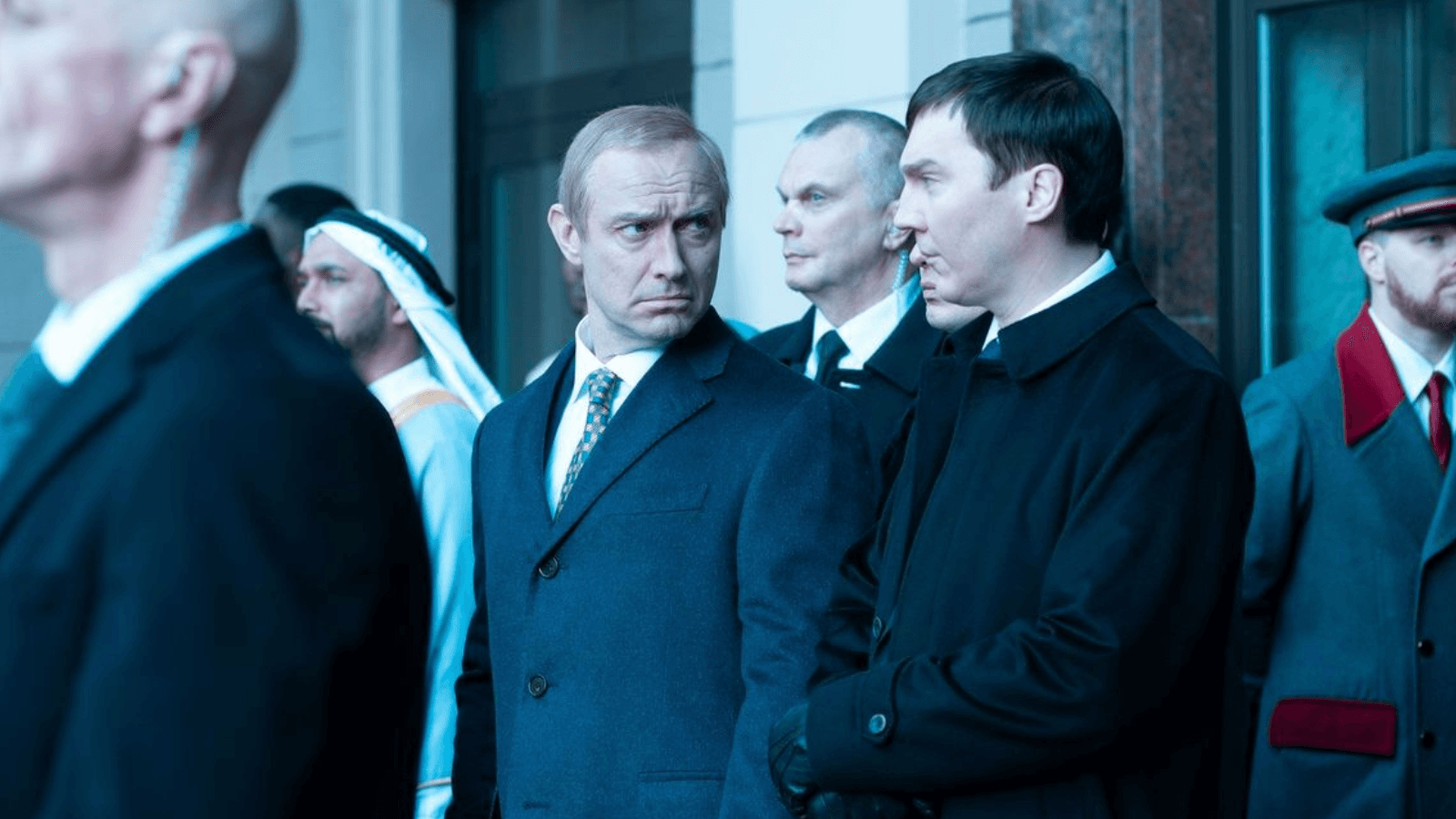
Zurich Film Festival Dispatch – Part 5
By David Hill | October 22, 2025
The 21st Zurich Film Festival ran from September 25 to October 5. Check here for the full lineup. Some films mentioned below will be reviewed separately in full-length writeups, but for now, here are some initial impressions. Also, check out Part 1, Part 2, Part 3, and Part 4.
The Wizard of the Kremlin
Gala Premieres
Based on the 2022 novel of the same name by Giuliano da Empoli, Olivier Assayas’ The Wizard of the Kremlin cannot be faulted for a lack of ambition. Told through the eyes of fictional political advisor Vadim Baranov (Paul Dano), the film traces Russia’s evolution from the early 1990s to the recent past—covering the fall of the Soviet Union, Vladimir Putin’s rise to power, and the country’s transformation into an increasingly authoritarian state.
Given this premise and Assayas’ excellent track record (Carlos, Personal Shopper), one could reasonably expect The Wizard of the Kremlin to be an urgent and engaging political thriller. Alas, that is not the case. The film’s problems start with its unconvincing framing device: In Russia in 2019, Baranov—no longer involved in politics and living a secluded life at his countryside estate—meets an American academic (Jeffrey Wright) and recounts his life story. Most of the film unfolds through flashbacks depicting what Baranov tells the academic. This device adds little to the film and mainly serves as an excuse for an excessive amount of expositional narration. As a result, the film often feels more novelistic than cinematic.
This is only one of several factors that prevent the audience from becoming fully immersed in the story. Another is the fact that its Russian characters speak English and are portrayed by famous Western actors. As the excellent 2019 limited series Chernobyl demonstrated, this is not necessarily a dealbreaker, but The Wizard of the Kremlin offers so little to latch onto emotionally that it becomes difficult to overlook. In a headline-grabbing casting choice, Putin is played by Jude Law—he delivers a strong performance and looks the part, but he never fully disappears behind the role. The cast also includes Alicia Vikander, who does her best with an underwritten character.
Moreover, The Wizard of the Kremlin suffers from pacing issues. Particularly in the beginning, it rushes through its various chapters at breakneck speed. While this ensures that the film never becomes dull despite its shortcomings and 152-minute runtime, it also means that very little sticks with the audience. Assayas eventually finds a better rhythm, and the second half is generally more engaging than the first. One standout chapter depicts Baranov visiting the offices of Russia’s Internet Research Agency, where the internet is described as “the battleground of modern warfare”—a striking sequence given that we live in a time when social media is flooded with fake news originating from Russia, contributing to growing polarization and the rise of populism in Western countries.
Despite offering occasional insights, the film’s commentary on Russia and Putin ultimately feels lacking. As with last year’s The Apprentice about Donald Trump, I left the theater not much wiser regarding its subject matter. In conclusion, The Wizard of the Kremlin is a disappointment and a rare misfire from Assayas. 2/4 stars
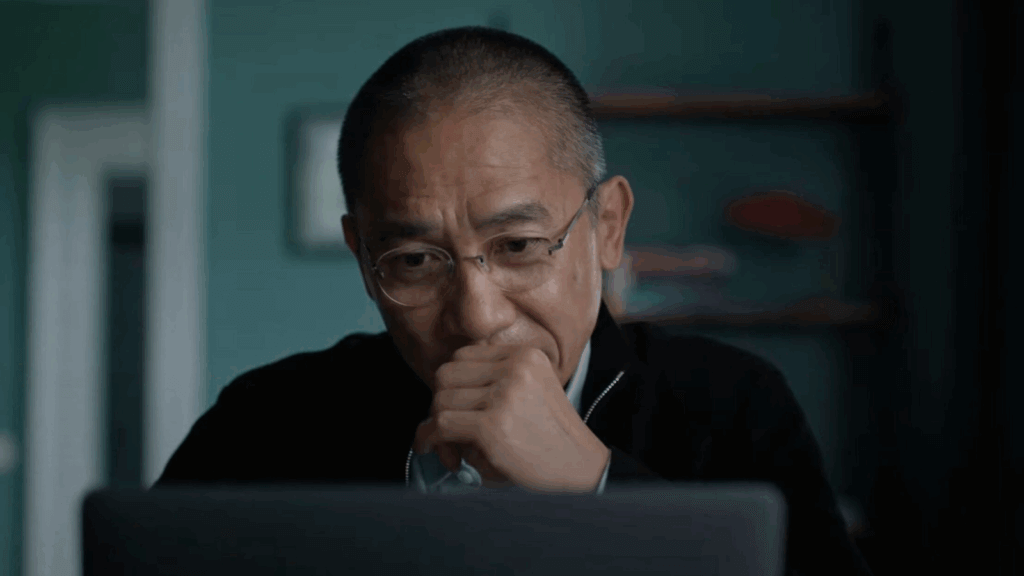
Silent Friend
Signatures
Silent Friend, the new film by writer-director Ildikó Enyedi and the winner of the FIPRESCI Prize at Venice, is a profound meditation on connection—among people, between humans and nature (particularly plants), and between past, present, and future. It interweaves three stories from different time periods, all set in the botanical garden of Marburg, a German university city.
Each story unfolds during a time of transition. The earliest, set in 1908, follows Grete, the university’s first female botany student (Swiss actress Luna Wedler, a deserved winner of the Marcello Mastroianni Award at Venice). Grete is a brilliant student who discovers hidden patterns in plants, but she faces discrimination and isolation as an outsider in a patriarchal system. After being thrown out by her host family for sexist reasons, she starts working as an assistant to a photographer, and the studio becomes a safe space for her.
Another story takes place in 1972, during the countercultural era, when society and university life have become much less rigid. It follows a shy student named Hannes (newcomer Enzo Brumm), who befriends a hippie and fellow student called Gundula (Marlene Burow). Gundula conducts an experiment with a geranium to study whether plants can feel. When she goes on a trip, she asks Hannes to keep track of the experiment. After not taking it seriously at first, he forms a connection with the geranium and makes fascinating discoveries during Gundula’s absence.
The most recent story, set in 2020, follows Tony, a visiting neuroscientist from Hong Kong (Tony Leung Chiu-wai—in his first European production, his screen presence as strong as in In the Mood for Love). When the COVID lockdown begins, he becomes stranded at the university with a caretaker named Anton (Sylvester Groth) and can no longer conduct scientific tests with humans. After getting in touch online with a French botanist called Alice (Léa Seydoux—radiant as ever, despite only appearing through screens), he applies his neuroscientific knowledge to perform unusual experiments with the botanical garden’s ancient Ginkgo tree.
Although the different stories and characters are highly engaging, Silent Friend is not a conventionally structured, narrative-driven film. Rather, it is a contemplative work that explores questions of science, plant intelligence, time, transformation, and social norms with a sense of wonder and humility. The narrative strands do not tie together directly, but they are linked thematically—and through their shared setting in the botanical garden, where the Ginkgo tree, the titular silent friend, appears in each era. Fittingly, the tree is mentioned in the end credits alongside the human cast members and other plants featured in the film.
Visually, Silent Friend is something to behold. Enyedi and cinematographer Gergely Pálos use different formats for each time period—35mm black-and-white film for 1908, 16mm color film for 1972, and digital color cinematography for 2020. The compositions are flawless and include stunning interludes, such as microscopic time-lapse footage of plant reproduction and visualizations of neural oscillations. These breathtaking visuals are complemented by a mesmerizing score from Gábor Keresztes and Kristóf Kelemen, resulting in a deeply transportive audiovisual experience—at times reaching transcendental, goosebump-inducing heights reminiscent of 2001: A Space Odyssey.
In addition to being transportive and thought-provoking, Silent Friend makes its audience see the world—particularly plants—with new eyes. All the while, it never becomes didactic or pretentious. Enyedi was present at the Zurich Film Festival and introduced the film with the following words: “People tend to take auteur films like this one very seriously—please don’t.” Indeed, the writer-director maintains a light touch despite exploring big existential questions, and she even includes moments of delightful humor. At one point, Hannes avoids the peer pressure of smoking a joint in a hilarious manner that is best left unspoiled. Moreover, editor Károly Szalai expertly intercuts the film’s different timelines so that the temporal shifts never feel intrusive, giving the film a graceful, organic flow.
Watching Silent Friend is a unique and unforgettable experience. It is a poetic and thematically layered work that features breathtaking visuals and outstanding performances across the cast. With its restraint and focus on connection, the film provides a welcome antidote to our current times, which lean toward bluntness, division, and limited individual perspectives. Viewers not accustomed to arthouse cinema may struggle with its deliberate pace and lack of conventional narrative structure, but those who can tune into its wavelength will be as awestruck as I was. Silent Friend is the best film I saw at this year’s ZFF and one of the very best films of the year. 4/4 stars
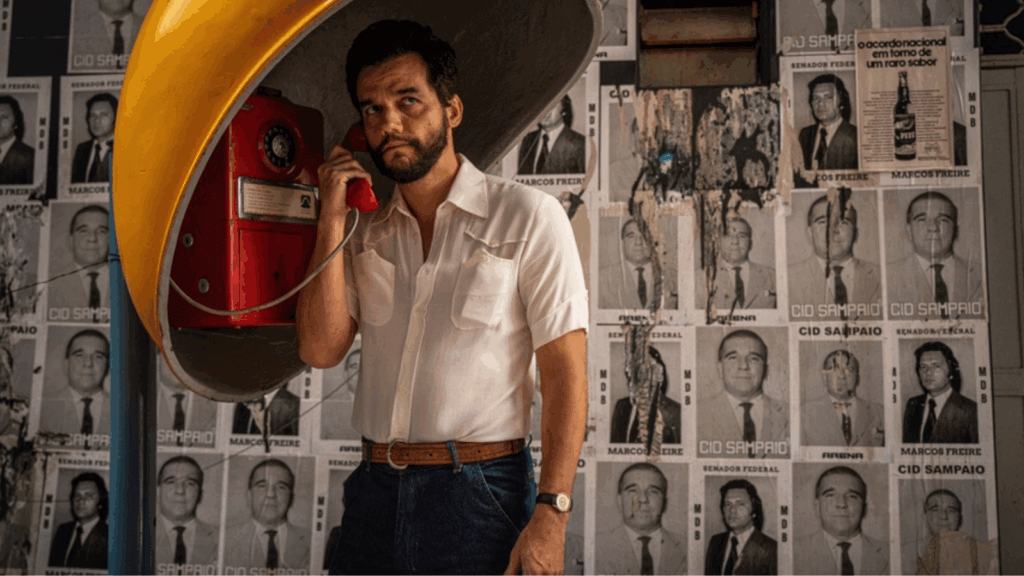
The Secret Agent
Gala Premieres
Set in Recife in 1977 during the Brazilian military dictatorship, Kleber Mendonça Filho’s The Secret Agent follows a former academic on the run (an excellent Wagner Moura, who deservedly won the Best Actor award at Cannes). Given the film’s title and premise, one might expect a conventional historical-political thriller, but that would be a mistaken impression. Rather, The Secret Agent is an original and idiosyncratic work that defies easy categorization.
First and foremost, the film completely immerses the audience in its setting through impressive cinematography—shot with Panavision anamorphic lenses and vintage equipment—and meticulous production design. While the repression and corruption of the Brazilian military dictatorship are always felt, they are not the sole focus. The film also portrays the lives of ordinary people in vivid detail—among other things, we witness Carnival as well as the impact of the release of Jaws in Brazilian theaters.
The Secret Agent not only brings its setting to life but also relates it to both past and future. The film opens with radio broadcasts, music, and photographs from the 1950s—a time when Brazil enjoyed much greater freedom than under the military regime. Later, there are flashforwards to history students researching the events of the main storyline, but the historical archives only offer an incomplete picture. These flashforwards culminate in a haunting epilogue set in the present that brings the film’s exploration of memory, erasure, and history full circle.
It takes a while for the plot to click into gear and for the audience to fully understand why Moura’s character is on the run. Even so, The Secret Agent remains consistently engaging thanks to Mendonça Filho’s assured and energetic filmmaking. Beyond its strong sense of time and place, the film features a number of colorful side characters and playful digressions—including a bizarre episode involving a hairy human leg that seemingly comes to life and attacks people after being discovered in a shark’s belly and disposed of by the authorities.
The hairy leg sequence, based on a real Recife urban legend and reminiscent of a horror film, exemplifies how The Secret Agent combines entertainment value with thematic depth—the grotesque limb serving as a potent symbol of state violence and persecution during the dictatorship. Moreover, the film ultimately delivers the thrills promised by its title with a gripping shootout and a tense foot chase toward the end.
Throughout the film, writer-director Mendonça Filho—who won the Best Director award at Cannes—expertly balances the varied elements and tonal shifts. As in his 2019 film Bacurau, he does not take himself too seriously and embraces pulpy flourishes, yet this never undermines the gravity or resonance of his thematic concerns. Overall, The Secret Agent is a rich, layered work that offers a deeply satisfying viewing experience on both a visceral and intellectual level. 3.5/4 stars
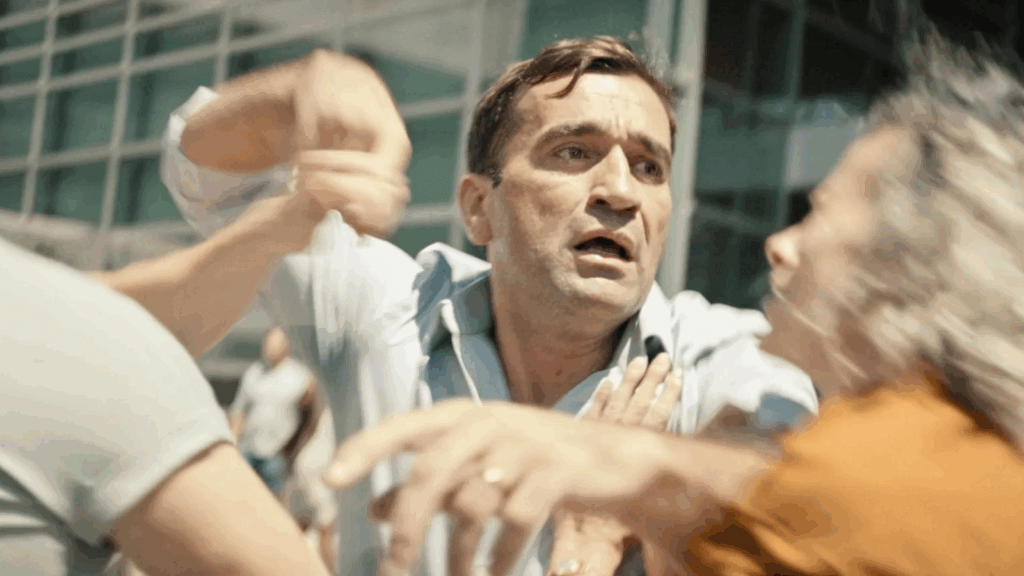
Father
Feature Film Competition
As decided by an international jury led by Reinaldo Marcus Green (director of King Richard), Tereza Nvotová’s Father won the Feature Film Competition at this year’s ZFF. The Slovak film follows Michal (Milan Ondrík), who owns a struggling local paper company and lives with his wife (Dominika Morávková) and their toddler. Early on, Michal makes a terrible mistake whose exact nature is best left unspoiled, and the remainder of the story deals with its aftermath.
The early scenes of Father effectively convey Michal’s stressful daily life as he juggles work and family duties in a way that feels real and relatable. Unfortunately, the same cannot be said for the rest of the film. While Michal’s mistake and its consequences are devastating, much of what follows feels implausible, which significantly limits the viewer’s emotional investment—a fatal flaw in a film that asks its audience to empathize with, rather than judge, Michal.
Although Father touches on compelling themes such as guilt, shame, forgiveness, and public outrage, it does not offer enough substance to compensate for its lack of plausibility and emotional resonance. Its story could have provided the basis for a strong short film, but it is too thin to sustain a feature. As a result, the film often feels unengaging despite its characters enduring an extreme situation and unspeakable misery.
On the plus side, Father features assured cinematography—with a fluid camera and long, technically impressive takes—and committed performances from Ondrík and Morávková. Taken as a whole, however, it is an underwhelming winner of the Feature Film Competition. 2/4 stars
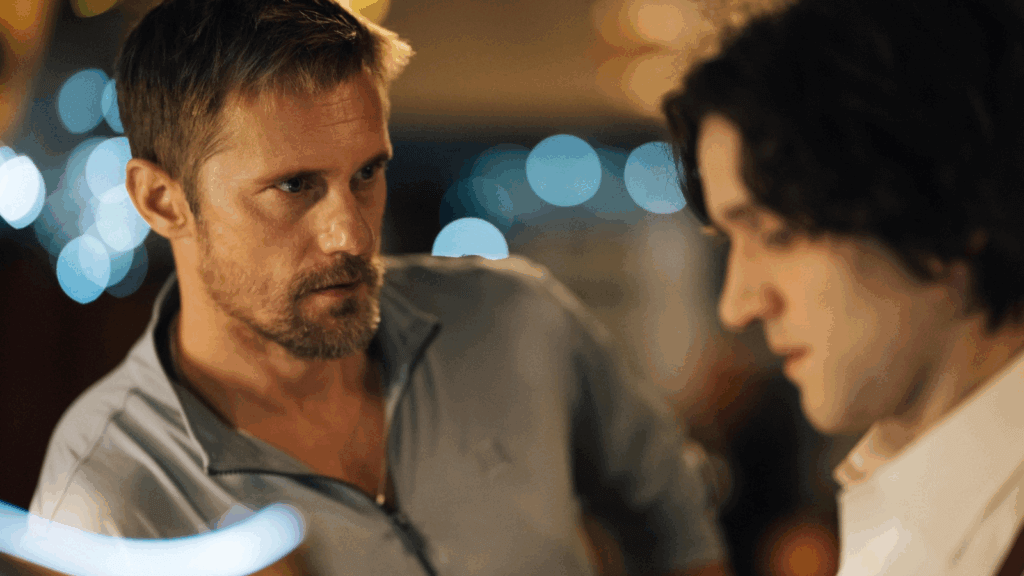
Pillion
Gala Premieres
Harry Lighton’s feature debut Pillion is a queer romantic dramedy set in the world of BDSM. Based on the 2020 novel Box Hill by Adam Mars-Jones, it follows a timid and inexperienced gay man named Colin (Harry Melling). Living a quiet life in suburban England, he spends his days feeling invisible—until he meets Ray (Alexander Skarsgård), a confident and enigmatic biker. The two embark on a relationship that introduces Colin to BDSM and gradually helps him discover his romantic and sexual identity.
Pillion occasionally leans on familiar rom-com tropes, but its candid and surprisingly tender depiction of a gay BDSM relationship makes it stand out. Lighton explores vulnerability, consent, and emotional need through scenes of dominance and submission—all the while expertly balancing eroticism, humor, and discomfort. Thanks to these qualities and the outstanding performances by Melling and Skarsgård, watching Colin and Ray’s blossoming relationship—and their shifting power dynamic—is consistently engaging.
Given these strengths, it is easy to forgive the film for lacking great depth and for ending on a slightly underwhelming note. Overall, Pillion is an assured feature debut that announces Lighton as a promising new voice in cinema. 3/4 stars

David Hill is a lawyer from Switzerland. He has long had a passion for cinema, and he devotes most of his spare time to watching and researching films. His primary interest focuses on arthouse films, and he occasionally contributes to Deep Focus Review as a guest writer.
Thank You for Supporting Independent Film Criticism
If the work on DFR has added something meaningful to your love of movies, please consider supporting it.
Here are a few ways to show your support: make a one-time donation, join DFR’s Patreon for access to exclusive writing, or show your support in other ways.
Your contribution helps keep this site running independently. However you choose to support the site, please know that it’s appreciated.
Thank you for reading, and for making this work possible.
Brian Eggert | Critic, Founder
Deep Focus Review




